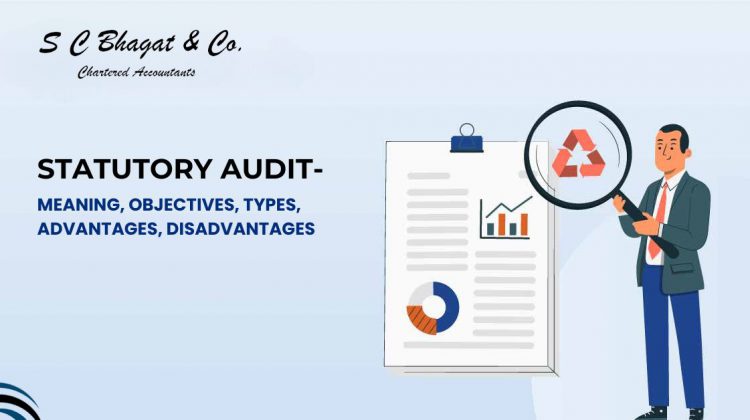Introduction
In the dynamic landscape of financial management, statutory audits stand tall as crucial guardians of transparency and accountability. As businesses navigate intricate financial landscapes, understanding the meaning, objectives, types, advantages, and disadvantages of statutory audits becomes paramount.
Meaning of Statutory Audit
Statutory audits are comprehensive examinations of a company’s financial records, ensuring adherence to legal requirements. This audit serves as a vital tool to validate financial transactions and safeguard the interests of stakeholders.
Objectives of Statutory Audit
The primary objectives encompass accuracy, compliance, and fraud prevention. Statutory audits play a pivotal role in upholding financial integrity and ensuring businesses operate within the framework of established legal standards.
Types of Statutory Audit
Statutory audits manifest in various forms, including external, internal, and forensic audits. Each type serves a unique purpose, contributing to the overall financial governance of an organization.
Advantages of Statutory Audit
The advantages are multifold, ranging from enhancing financial credibility to providing stakeholders with assurance. Statutory audits, when executed diligently, can significantly improve internal controls within an organization.
Disadvantages of Statutory Audit
While the benefits are evident, businesses must weigh the costs and potential disruptions associated with statutory audits. Limitations in scope can sometimes hinder the effectiveness of these audits.
The Process of Statutory Audit
The audit process involves meticulous planning, fieldwork, evidence gathering, and culminates in a detailed report with recommendations for improvement.
Key Components of a Statutory Audit Report
The auditor’s opinion, financial statements, and management’s response are integral components of the audit report, providing a comprehensive overview of the company’s financial health.
Emerging Trends in Statutory Audits
With technology at the forefront, statutory audits are witnessing a paradigm shift. Integration of data analytics, artificial intelligence, and the ability to conduct remote audits are reshaping the audit landscape.
Case Studies
Real-world examples underscore the impact of statutory audits, shedding light on instances where audits played a pivotal role in uncovering financial irregularities.
How Businesses Can Prepare for Statutory Audits
Best practices and strategies to streamline financial processes empower businesses to navigate audits seamlessly, ensuring compliance and accuracy.
Future Outlook
Anticipated changes in statutory audit practices, influenced by global trends and technological advancements, pave the way for a future where audits are more efficient and insightful.
Common Misconceptions about Statutory Audits
Dispelling myths and clarifying misconceptions ensures a more accurate understanding of the role and significance of statutory audits.
Industry-specific Considerations
Recognizing variances in statutory audit practices across industries is essential for businesses to tailor their financial governance strategies accordingly.
Conclusion
In conclusion, statutory audits emerge as linchpins in financial governance. Their role in ensuring transparency, compliance, and accuracy cannot be overstated. As businesses evolve, so too must their approach to statutory audits to stay ahead in a rapidly changing financial landscape.
FAQs about Statutory Audits
- Are statutory audits mandatory for all businesses?
Statutory audits are generally required for businesses meeting specific criteria, often determined by size, industry, or regulatory requirements. - How often should a company undergo a statutory audit?
The frequency of audits varies. Typically, they are conducted annually, but certain factors, such as industry regulations or financial health, may influence the frequency. - Can technology replace the human element in statutory audits?
While technology plays a significant role, the human element, especially professional judgment and interpretation, remains crucial in statutory audits. - What happens if a company fails a statutory audit?
Failing an audit doesn’t imply immediate legal consequences. However, it highlights areas of concern that need attention, and the company may be required to take corrective actions. - How can businesses prepare for a statutory audit effectively?
Thorough documentation, adherence to accounting standards, and implementing strong internal controls are key to preparing for a successful statutory audit.

